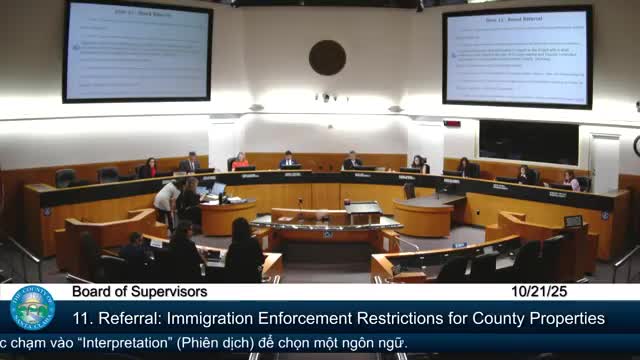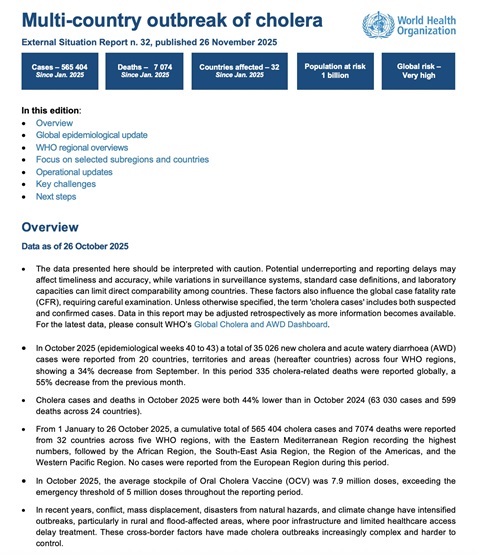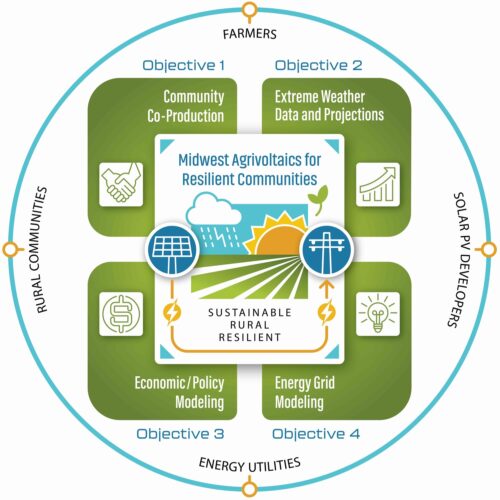Board extends Microenterprise Home Kitchen pilot and asks staff to explore fee subsidies and equity data – Citizen Portal AI

Report on the Santa Clara County MEHKO Pilot Program and Alignment with Sustainable Development Goals
Program Advancement and Contribution to SDG 8 (Decent Work and Economic Growth)
On October 21, the Santa Clara County Board of Supervisors unanimously approved the continuation and expansion of the Microenterprise Home Kitchen Operations (MEHKO/MICO) pilot program. This initiative directly supports Sustainable Development Goal 8 by fostering local entrepreneurship and creating opportunities for decent work. The program formalizes home-based culinary businesses, enabling hundreds of applicants to operate legally and contribute to local economic growth.
Enhancing Social Equity in Alignment with SDG 1, SDG 5, and SDG 10
The MEHKO program has demonstrated a significant impact on social equity, advancing several key Sustainable Development Goals. Public testimony highlighted that the program is a vital economic lifeline for specific demographic groups, thereby contributing to:
- SDG 5 (Gender Equality): A large number of operators are women, for whom the program provides a means to generate income while managing family care responsibilities, thus promoting female economic empowerment.
- SDG 10 (Reduced Inequalities): The program has proven particularly beneficial for immigrants and other marginalized communities, providing an accessible entry point into the formal economy.
- SDG 1 (No Poverty): By allowing entrepreneurs to utilize existing home assets, the program lowers the barrier to starting a business, offering a direct pathway to increased income for low-income individuals.
In response to community feedback, the Board has prioritized an evaluation of the program from an equity perspective to ensure its benefits are distributed fairly.
Board Directives for Inclusive and Sustainable Development
To strengthen the program’s alignment with the SDGs, the Board of Supervisors issued several key directives to county staff. These actions are designed to address barriers and enhance accessibility.
- Improve Accessibility for Low-Income Operators: Staff were directed to develop options to make the program more accessible, specifically targeting SDG 1 (No Poverty) and SDG 10 (Reduced Inequalities).
- Explore Financial Subsidies: Recognizing that permit fees can be a barrier, the Board mandated an evaluation of funding options to lower costs for low-income operators. This includes searching for external grants and considering targeted general-fund support, despite legal constraints on fee setting imposed by state regulations.
- Enhance Data Collection for Equity Analysis: To better measure progress against SDG 10, the Board approved expanded data collection on participant demographics. This will enable a more robust analysis of the program’s equity impact.
Future Outlook and Commitment to SDG 11 (Sustainable Cities and Communities)
The county is taking further steps to integrate MEHKOs into the local community fabric, supporting SDG 11 (Sustainable Cities and Communities). A public registry and map of participating kitchens is now available on the Department of Environmental Health website, increasing visibility and consumer access. Furthermore, county procurement planning will now consider MEHKOs as potential vendors for official events, promoting a sustainable and inclusive local food system.
Analysis of SDGs, Targets, and Indicators
1. Which SDGs are addressed or connected to the issues highlighted in the article?
-
SDG 1: No Poverty
The article highlights that the MEKO program allows operators, particularly those with low incomes, to earn income using their existing home kitchens. This directly addresses poverty by providing a pathway to economic self-sufficiency and financial stability for vulnerable individuals.
-
SDG 5: Gender Equality
The article explicitly states that many of the program’s speakers and operators are women. The program empowers them economically by enabling them to run a business from home, which allows them to balance work with family care responsibilities. This promotes women’s economic participation and empowerment.
-
SDG 8: Decent Work and Economic Growth
The program is centered on supporting “microenterprise” and “entrepreneurs” to operate legally. This fosters entrepreneurship, creativity, and the formalization of small-scale businesses, contributing to sustainable economic growth and creating decent work opportunities.
-
SDG 10: Reduced Inequalities
The program’s focus on accessibility for “low-income operators” and the specific mention of “immigrants” as beneficiaries addresses inequality. The board’s directive to collect “better data on participant demographics” to evaluate the program from an “equity perspective” directly aligns with the goal of reducing inequalities by ensuring inclusive economic opportunities.
2. What specific targets under those SDGs can be identified based on the article’s content?
-
SDG 1: No Poverty
- Target 1.4: By 2030, ensure that all men and women, in particular the poor and the vulnerable, have equal rights to economic resources… and access to… financial services, including microfinance. The MEKO program provides vulnerable groups with access to an economic resource—the ability to legally use their home kitchen to generate income, which is a form of micro-enterprise.
-
SDG 5: Gender Equality
- Target 5.5: Ensure women’s full and effective participation and equal opportunities for leadership at all levels of decision-making in political, economic and public life. The article notes that many operators are women, and the program facilitates their full participation in economic life by creating an accessible business model.
-
SDG 8: Decent Work and Economic Growth
- Target 8.3: Promote development-oriented policies that support productive activities, decent job creation, entrepreneurship, creativity and innovation, and encourage the formalization and growth of micro-, small- and medium-sized enterprises. The MEKO pilot program is a direct example of a policy that encourages the formalization and operation of micro-enterprises.
-
SDG 10: Reduced Inequalities
- Target 10.2: By 2030, empower and promote the social, economic and political inclusion of all, irrespective of… sex,… origin,… or economic or other status. The program’s focus on women, immigrants, and low-income operators, along with the directive to analyze its equity impact, directly supports the economic inclusion of these groups.
3. Are there any indicators mentioned or implied in the article that can be used to measure progress towards the identified targets?
- Number of program applicants and participants: The article mentions the pilot has “supported hundreds of applicants,” which is a direct quantitative indicator of the program’s reach.
- Demographic data of participants: The request to “collect better data on participant demographics” implies indicators such as the percentage of operators who are women, immigrants, or from low-income households. This data is crucial for measuring progress on equity and inclusion (SDG 5, SDG 10).
- Number of subsidies or fee reductions provided: The discussion about subsidizing “permit fees” for “low-income operators” implies an indicator related to the number or value of subsidies provided to ensure accessibility and reduce economic barriers (SDG 1, SDG 10).
- Number of registered microenterprises: The mention of a “public registry and map of MICOs” serves as a tool to track the number of formalized home-based businesses, indicating progress in entrepreneurship (SDG 8).
- Number of procurement contracts with microenterprises: The plan to consider “using MICOs as potential vendors for county events” suggests an indicator measuring the integration of these microenterprises into the local economy through public procurement.
4. Summary Table of SDGs, Targets, and Indicators
| SDGs | Targets | Indicators |
|---|---|---|
| SDG 1: No Poverty | 1.4: Equal rights to economic resources for the poor and vulnerable. |
|
| SDG 5: Gender Equality | 5.5: Ensure women’s full and effective participation in economic life. |
|
| SDG 8: Decent Work and Economic Growth | 8.3: Promote policies that support entrepreneurship and the formalization of micro-enterprises. |
|
| SDG 10: Reduced Inequalities | 10.2: Empower and promote the social and economic inclusion of all. |
|
Source: citizenportal.ai
What is Your Reaction?
 Like
0
Like
0
 Dislike
0
Dislike
0
 Love
0
Love
0
 Funny
0
Funny
0
 Angry
0
Angry
0
 Sad
0
Sad
0
 Wow
0
Wow
0

















































































